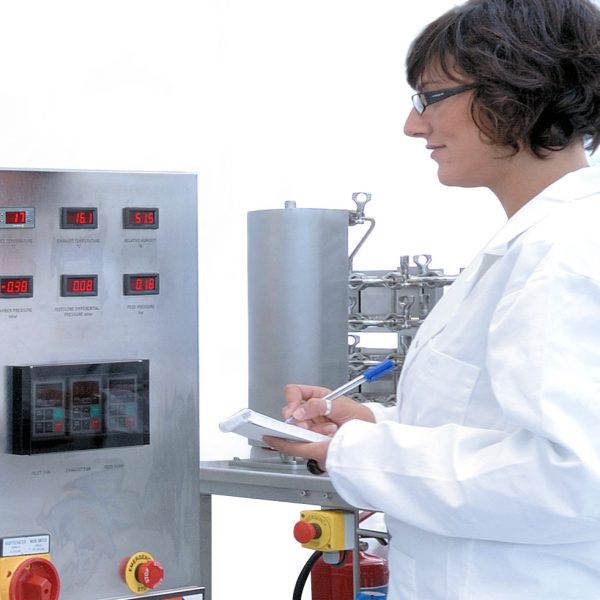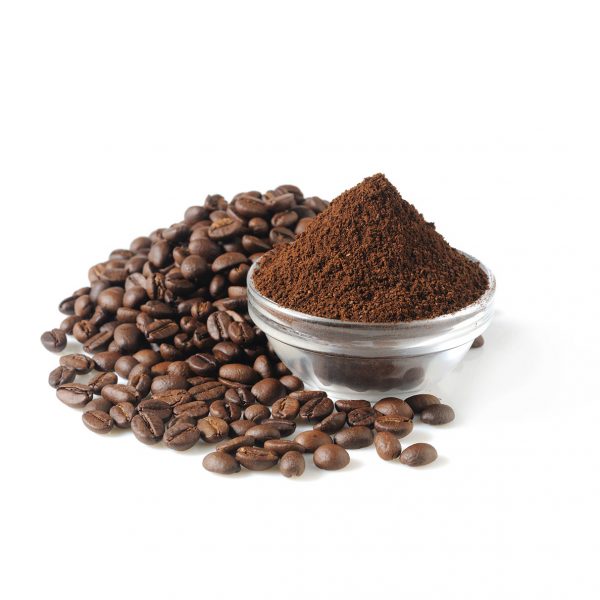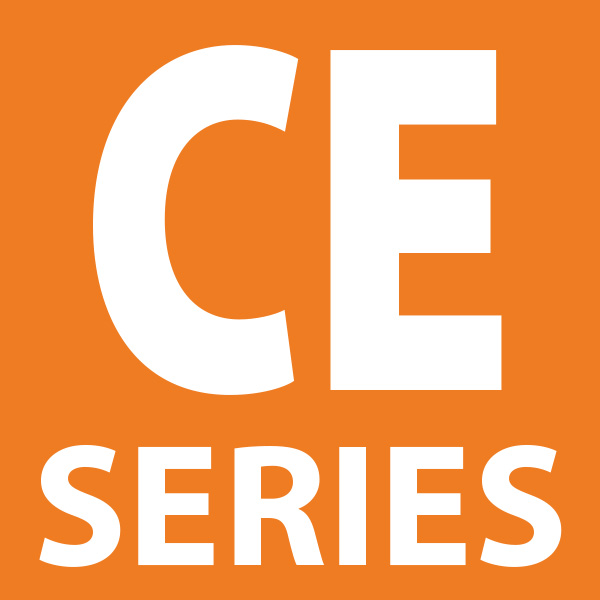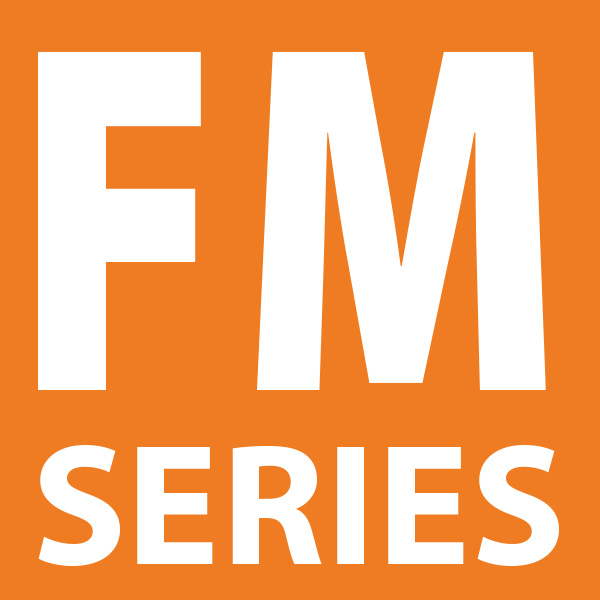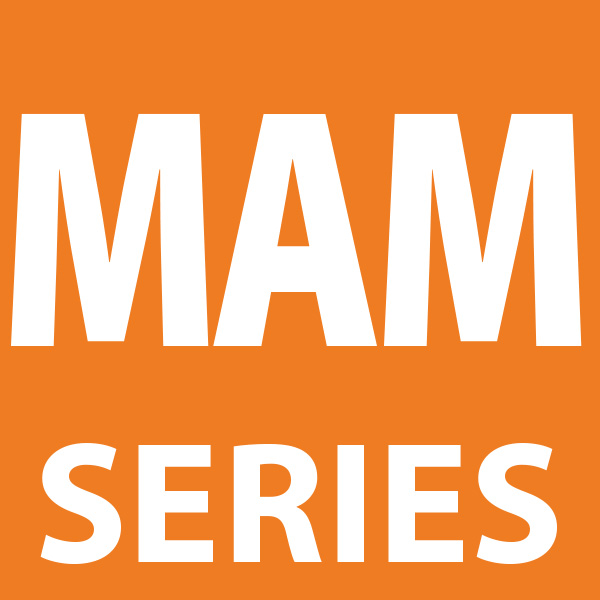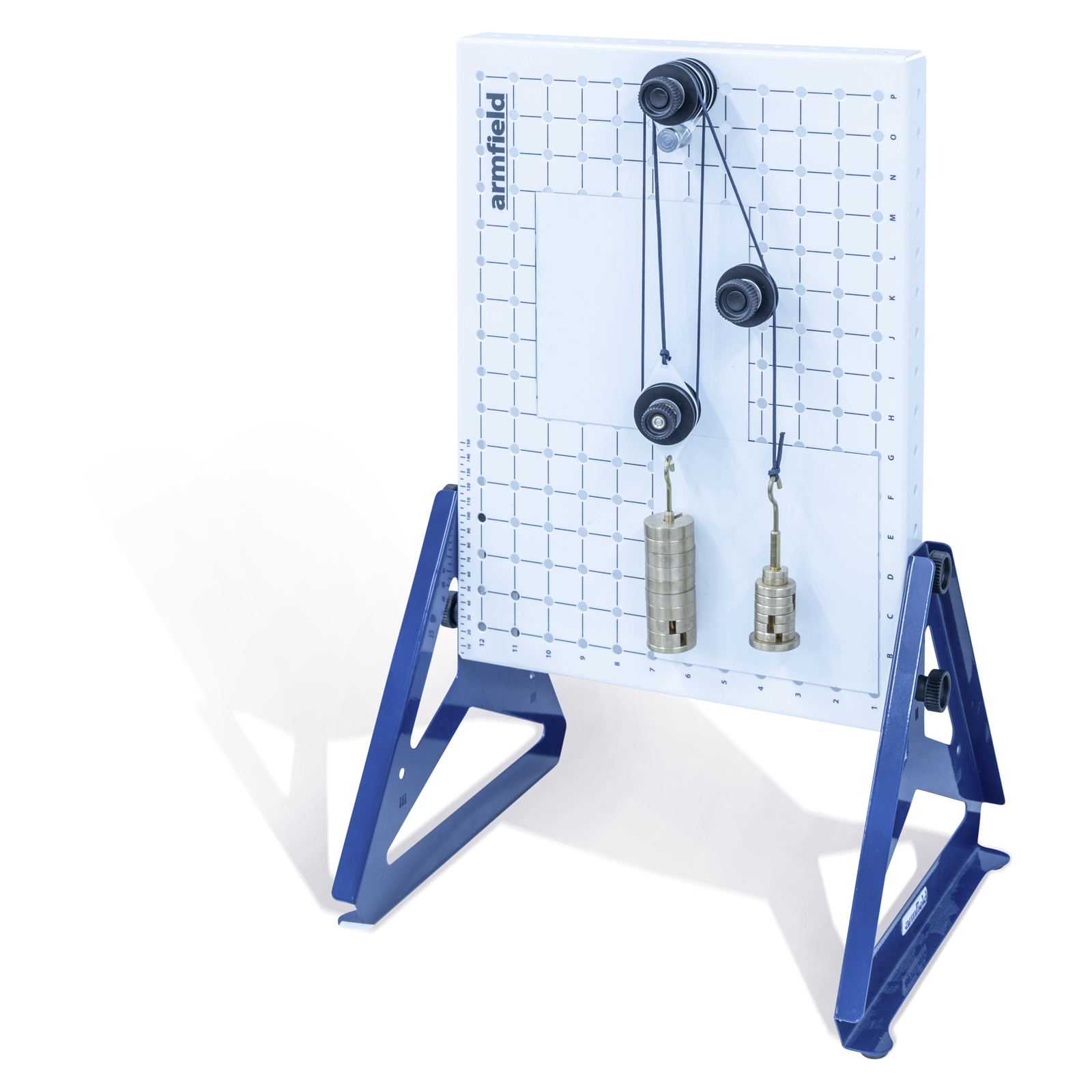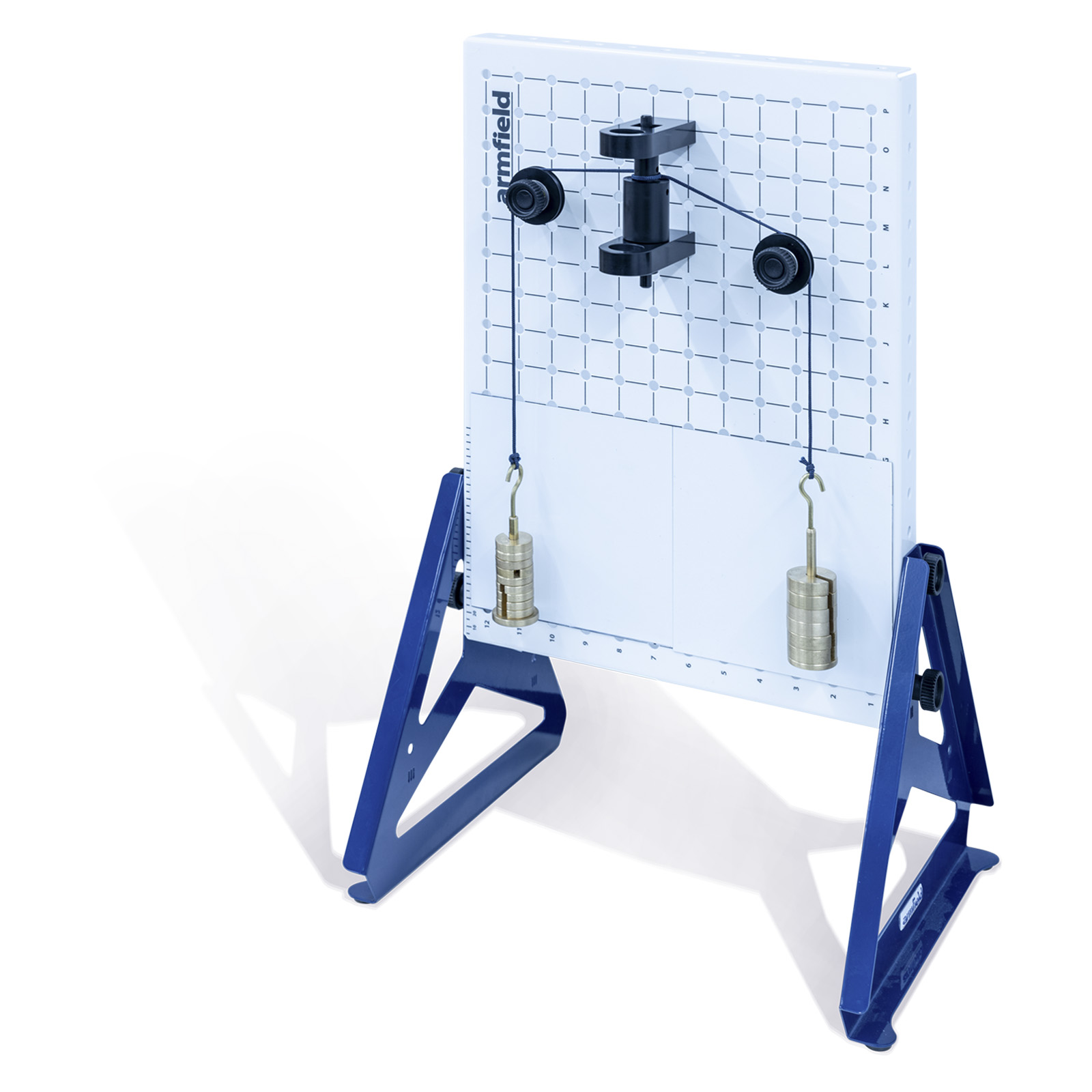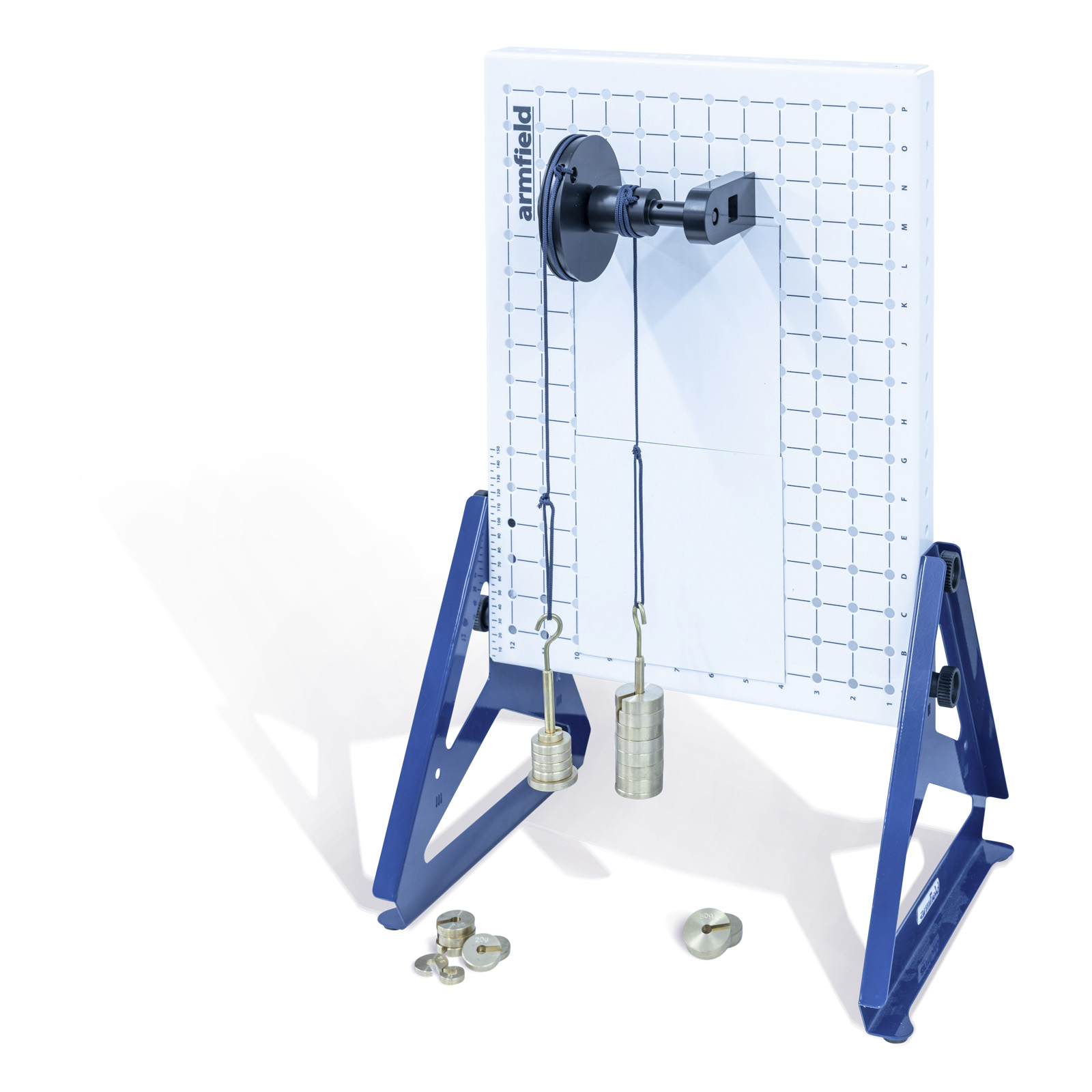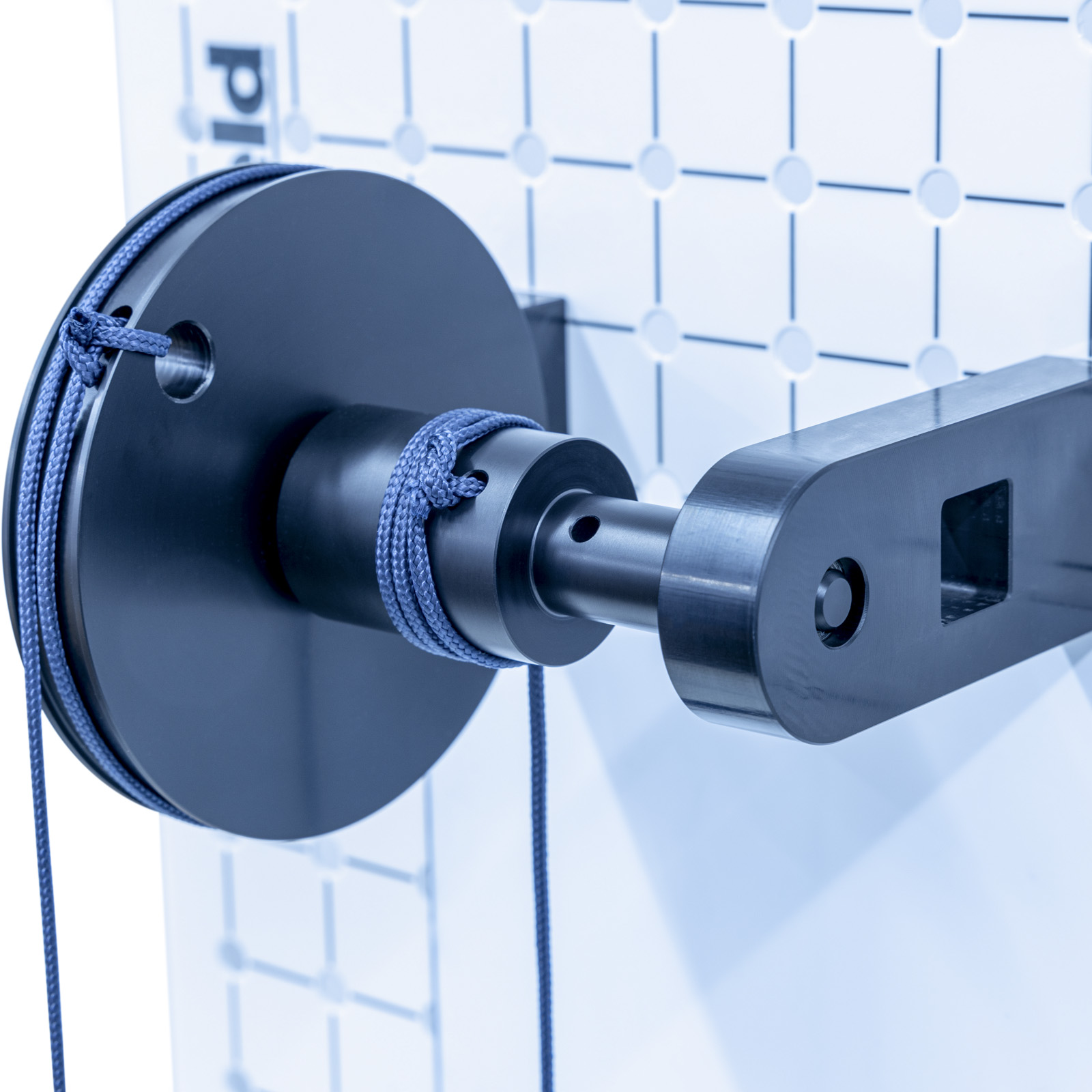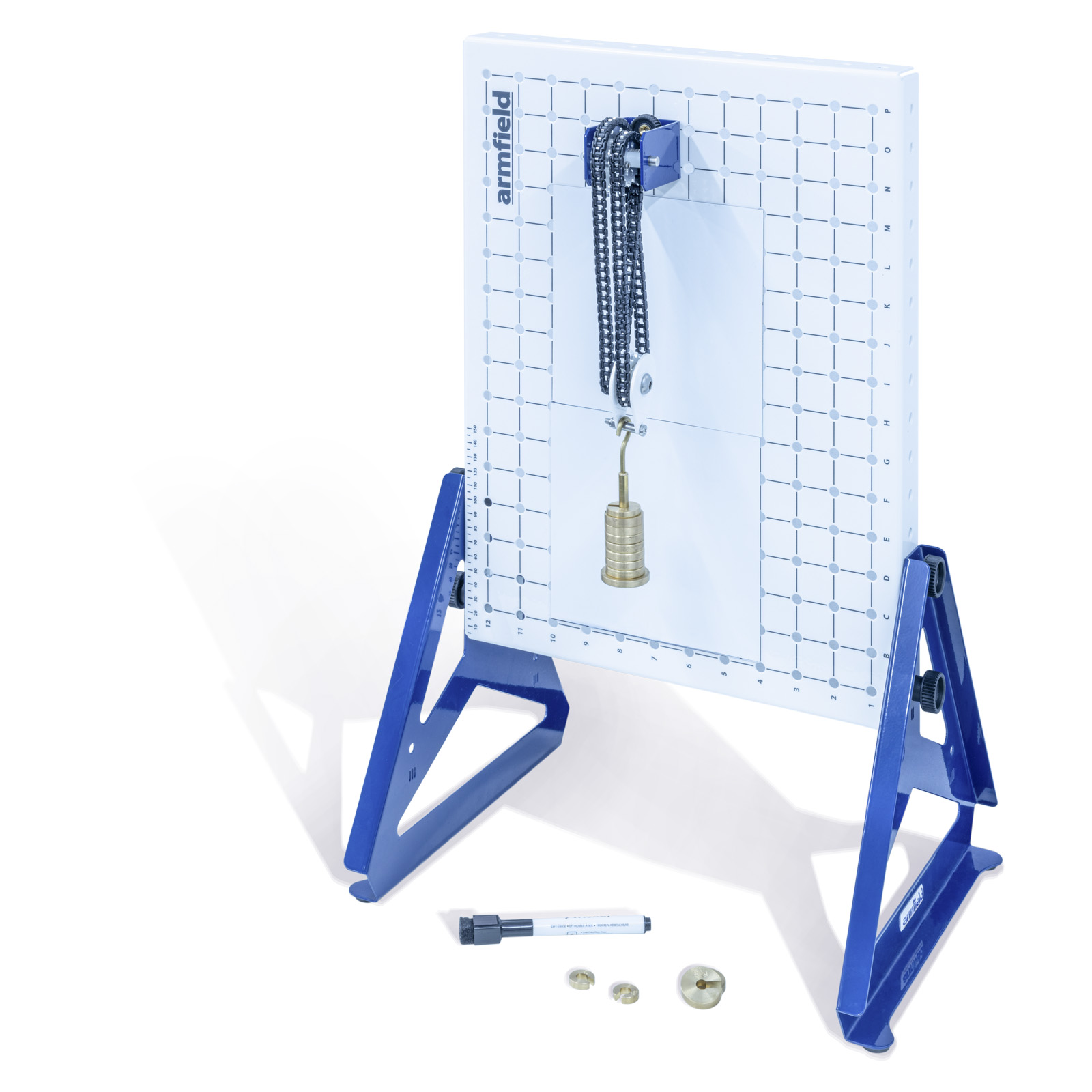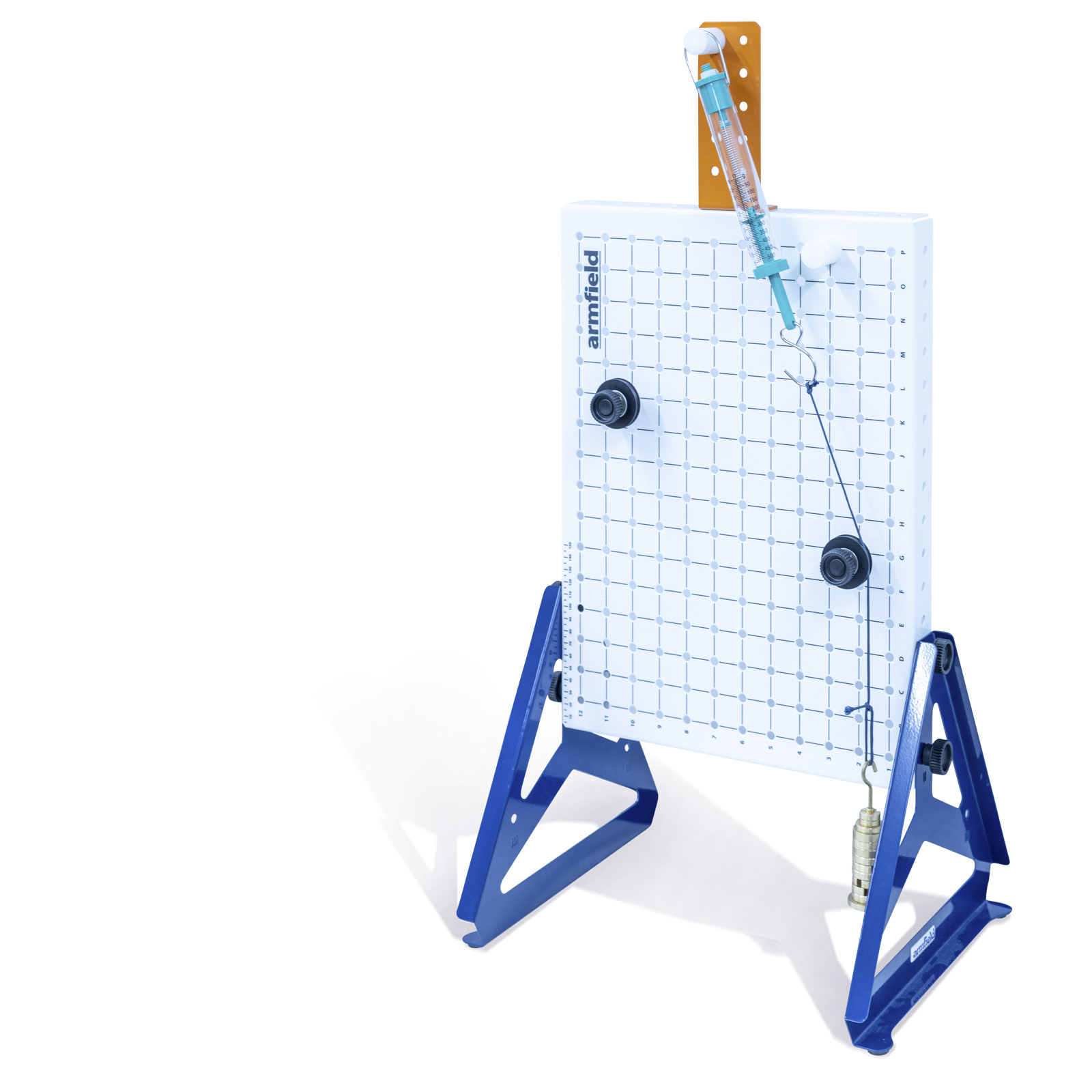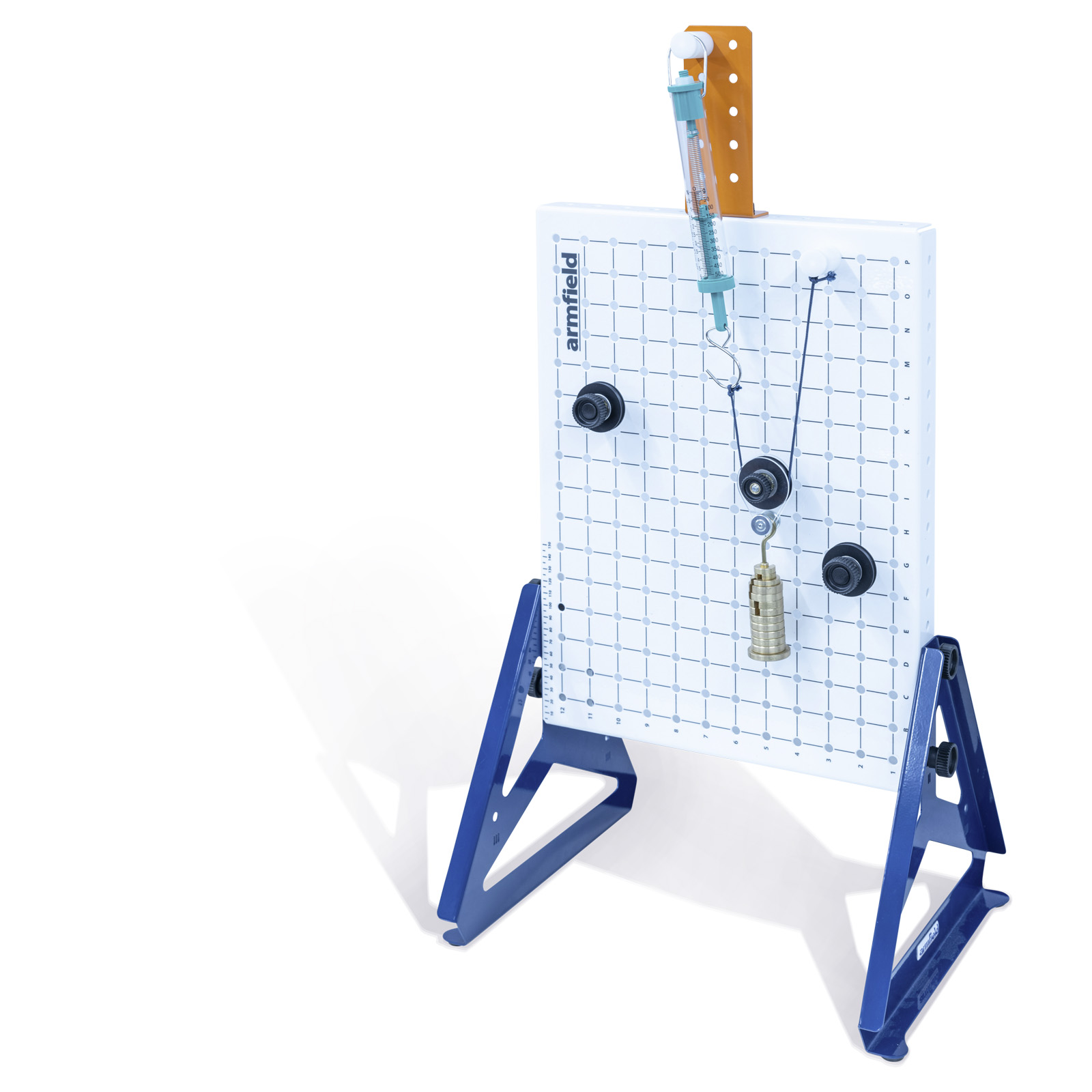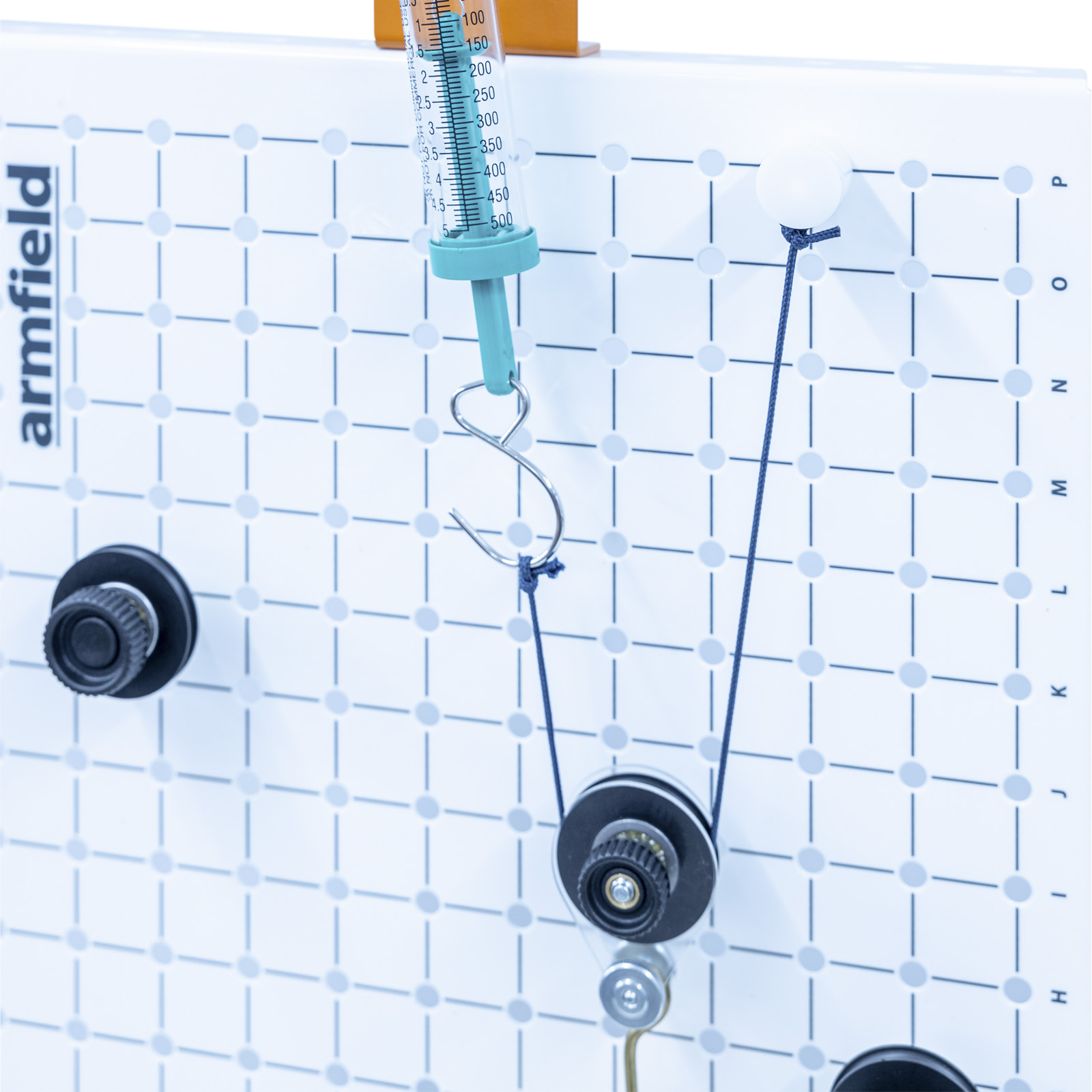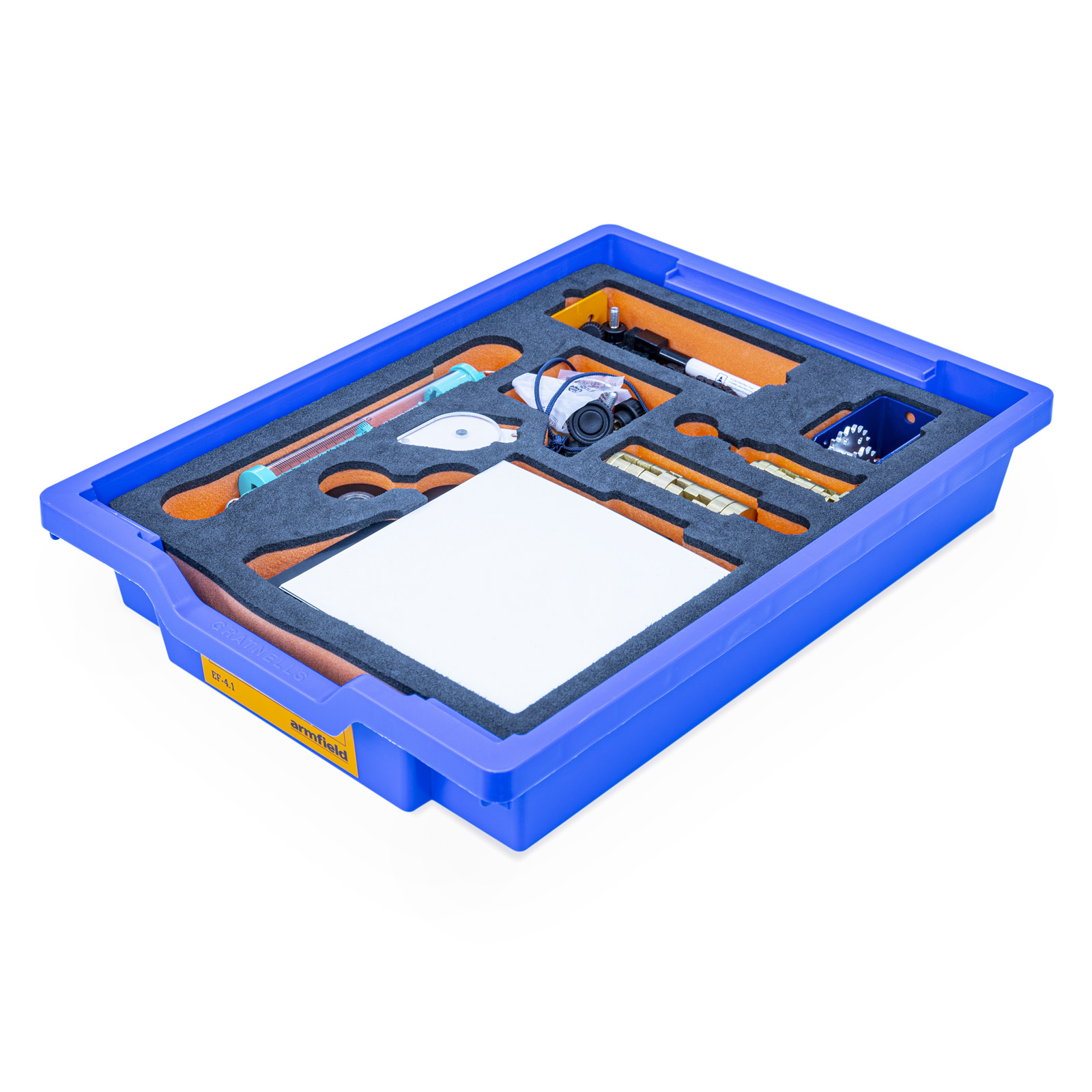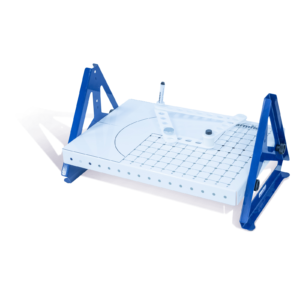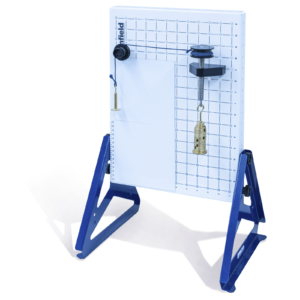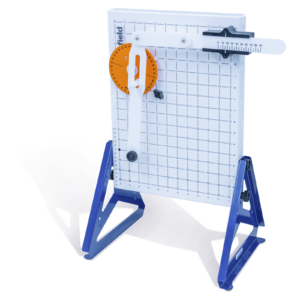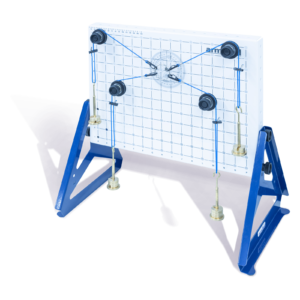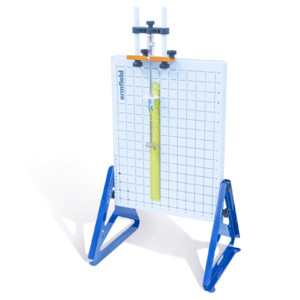EF-4.1 – Kinematics – Pulleys
The EF-4.1 Pulleys experiments kit introduces students to various types of pulleys including fixed, movable and compound pulleys. These experiments show the advantages of using different types of pulleys as a way of lifting weights.
Description
The Engineering Fundamentals range enables students to gain an understanding of the principles of engineering by the process of learning via experimentation.
The EF-4.1 Pulleys experiments kit introduces students to various types of pulleys including fixed, movable and compound pulleys. These experiments show the advantages of using different types of pulleys as a way of lifting weights.
The kit also allows students to familiarise themselves with a simple windlass or wheel and axle, and how this can allow a large load to be lifted whilst still maintaining a mechanical advantage, a differential windlass, how a capstan device allows high loads to be controlled by a relatively low restraining force and a Weston differential or chain hoist.
The kit introduces students to terms such as mechanical advantage, velocity ratio, work done, efficiency and the laws of a machine.
Technical Specifications
Features & Benefits
Features
- Neatly presented in an easily identifiable and durable storage tray
- Trays have clear lids making it easy to see their contents
- Pictorial tray contents list to identify missing components easily
- Accompanied by a detailed manual with various practical exercises
- Clear and concise assembly instructions for each experiment
- Multiple experiments per kit
- Toolless assembly
Benefits
- Hands-on understanding from lessons
- Improve the student’s dexterity by self-assembly with the instructions provided
Downloads
- Weston differential pulley
- Windlass/wheel and axle
- Compound pulleys
- Moveable pulleys
- Fixed pulleys
- Capstan
- EF-BU Base Unit
- Statics Experiments
– EF-1.1 Forces
– EF-1.2 Moments
– EF-1.3a Beams
– EF-1.3bTrusses
– EF-1.4 Springs
– EF-1.5 Torsion
- Dynamics Experiments
– EF-2.1 Friction
– EF-2.2 Simple Harmonic Motion
– EF-2.3 Rotational Friction
– EF-2.4 Potential and Kinetic Energy
– EF-2.5 Centrifugal and Centripetal Force
- Mechanisms Experiments
– EF-3.1 Cam, Crank and Toggle
– EF-3.2 Simple Mechanisms
– EF-3.3 Additional Mechanisms
– EF-3.4 Bar Linkages
- Kinematics
– EF-4.1 Pulleys
– EF-4.2 Gears
– EF-4.3 Drive Systems
- Strength of Materials
– EF-5.1 Tensile Tester
- Options
– EF-WS Workstation
- Chain block assembly
- Moving sprocket assembly
- Axle and pulley assembly
- Pulley ox assembly
- Wheel and axle assembly
- Fixed spring boss
- 1 x 250g weight hanger
- 1 x 500g weight hanger
- 1 x 10g weight hanger
- EF-BU Base Unit
- EF-BU on which to build the experiment from the tray components
- Level and stable work surface to mount the EF-BU upon. The optional EF-WS is ideal for this if no suitable desk or bench is available
PACKED AND CRATED SHIPPING SPECIFICATIONS
Volume: 0.02m³ per tray
Gross Weight: 5.0kg per tray
Tray
Length: 0.430m per tray
Width: 0.312m per tray
Height: 0.160m per tray
- EF-4.1 – Pulleys
- EF-BU – Base Unit
- EF-WS – Workstation (optional)



